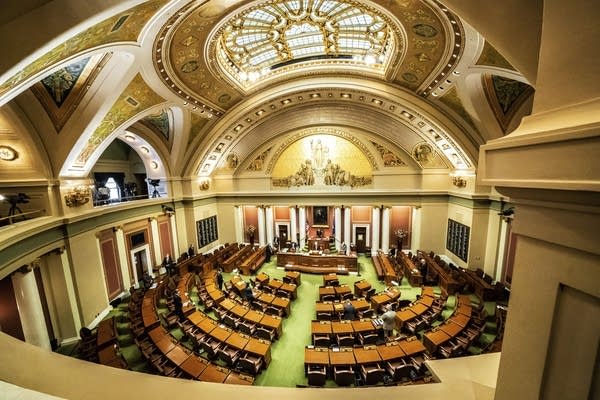Special session begins with debate over COVID-19 emergency, police powers

Democratic House Speaker Melissa Hortman, of Brooklyn Park, calls for members to stand in silence and bow their heads for 8 minutes and 46 seconds in honor of George Floyd on Friday as the Minnesota State Legislature met in a special session.
Glen Stubbe | Star Tribune via AP
Go Deeper.
Create an account or log in to save stories.
Like this?
Thanks for liking this story! We have added it to a list of your favorite stories.


